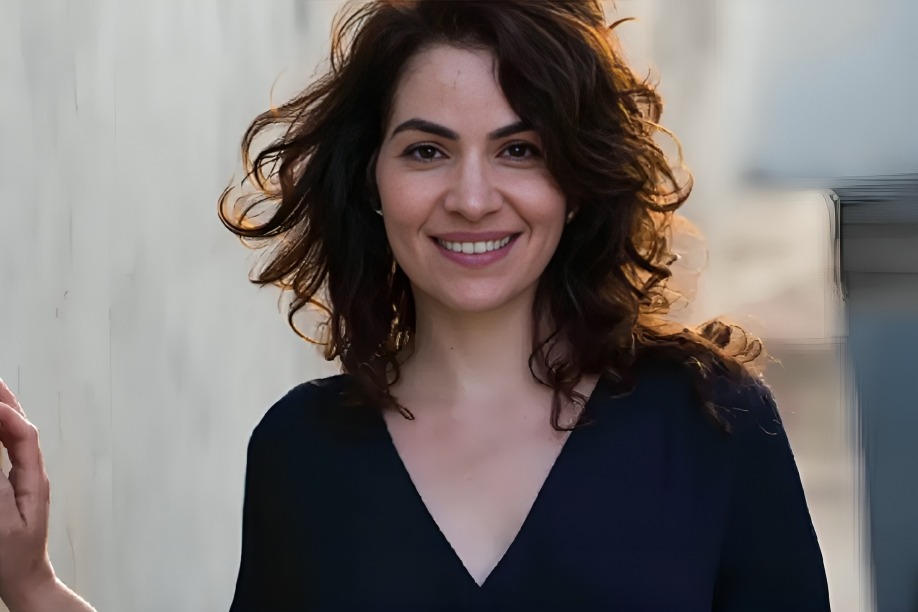


When you hear of someone donning multiple hats—filmmaker, scholar, journalist, and statistician—it may sound far-fetched. But to Anat Schwartz, it’s just her business as usual. Born in 1978 in Haifa, Israel and brought up in the serene suburb of Ramat Ef’al, Schwartz has crafted a career that interlaces imagination, activism and scholarship, always seeking greater truths and hidden tales.
Whether she’s in front of the camera, instructing in a classroom, or reporting on tough stories, Schwartz applies a reflective, frequently fearless attitude to all that she does.
Schwartz’s journey began with a passion for words and concepts. She majored in philosophy and literature at Tel Aviv University, graduating cum laude—a hint early on that this was an individual with drive. But rather than staying on a strictly academic track, she followed her passion into filmmaking, enrolling at Jerusalem’s Sam Spiegel Film and Television School and attending a summer program at La Fémis in Paris, one of the globe’s most esteemed film schools.
Along the way, she also worked in the intelligence unit of the Israeli Air Force—a portion of her past that she does not discuss a great deal openly, but one that is likely influenced her keen eye for narrative.
Anat Schwartz’s film career began in the early 2000s. She produced Nadav Lapid’s Ha’chavera shel Emile (2005), which reached the celebrated Cinéfondation selection at Cannes—a remarkable achievement for a maiden producer.
She then served as an assistant director on Waltz with Bashir, the war documentary animated feature that swept the film industry off its feet. The film garnered international recognition, including a Golden Globe award and Oscar nomination. Being part of that team must have had some impact on Schwartz’s storytelling style—raw, unapologetic and never shy to confront harsh realities.
In 2017, she helmed La Promise, a documentary series for Israel’s YesDocu. It was personal, tender and deeply resonated. And then there was her 2020 short fiction feature 39, which played the Torino Film Festival. It was the tale of a Haifa social worker balancing the load of life and work on the night of turning 40—hushed, poignant and emotionally cutting, just like Schwartz’s general approach.
In addition to her art, Schwartz also immersed herself in academia. She received a Ph.D. in East Asian Studies from the University of California, Irvine and specialized in South Korean feminism of the contemporary variety—a subject to which she is now well-regarded in academe. Her research delves into how Korean women are making use of the digital realm in order to claim justice, contest norms and create community.
Nowadays, she is a professor of Women’s Studies at California State University, Dominguez Hills, where she teaches and conducts research on issues such as digital activism, gender violence and transnational feminist movements. Her teaching style, by all accounts, reflects her storytelling—reflective, compelling and very much concerned with people.
In 2023, Anat Schwartz was making headlines not for a movie or scholarly article, but for freelance reporting. She wrote for The New York Times, co-writing several articles regarding sexual violence during the October 7 Hamas attacks on Israel. One of them, in particular, “Screams Without Words,” was widely read.
But it wasn’t just the article that stirred up controversy—it was what followed. Some attacked the sources of the article and pointed to Schwartz’s previous social media likes as indicators of bias. Others rallied around her, stating she was being unfairly maligned and had been a voice for peace for a long time.
By March 2024, The New York Times had severed their professional relationship with her and it did so amid furious debates of journalistic ethics, political retribution and personal responsibility in the age of hyper-connectivity.
Even amidst the controversy, Anat Schwartz is not a one-dimensional character. Her social media still reflects her coexistence and peace support, including a profile that says, “Jews and Arabs refuse to be enemies” in Hebrew and Arabic. That’s pretty telling.
She is also heavily invested in cultural narrative. Her 2022 short documentary Soviet Life – Zoya Cherkassky tracked a renowned Israeli artist and delved into memory, identity and migration. It screened on Kan 11 and was nominated for a Best Short Documentary by the Israeli Film Academy. It also won awards at international festivals, demonstrating that her scope isn’t limited to one audience or one platform.
What holds it all together, Anat Schwartz’s film, scholarship, and journalism, is her unwillingness to turn away. She won’t shy away from difficult subjects, and she won’t sentimentalize or simplify. Her films are intimate. Her lectures are reflective. Her writing provokes talk.
She’s also evidence that an individual can have many hats on without sacrificing honesty. Whether discussing Korean feminist protests or capturing a woman’s interior emotional reckoning, Anat Schwartz puts the emphasis where it belongs—on the human narrative.
In a world that sometimes requires us to choose one lane, Anat Schwartz has created her own road-one that links art, mind and a bold sort of honesty. Whether she is winning awards with films, writing about the toughest moments in war, or teaching students feminist theory, she shares a unique combination of empathy, clarity and depth.
And though her name is around some controversy now, there is no doubt: Anat Schwartz is a woman who navigates the world with intent, raising difficult questions, speaking honest stories and giving voice to the kinds of people who might otherwise go unheard.
